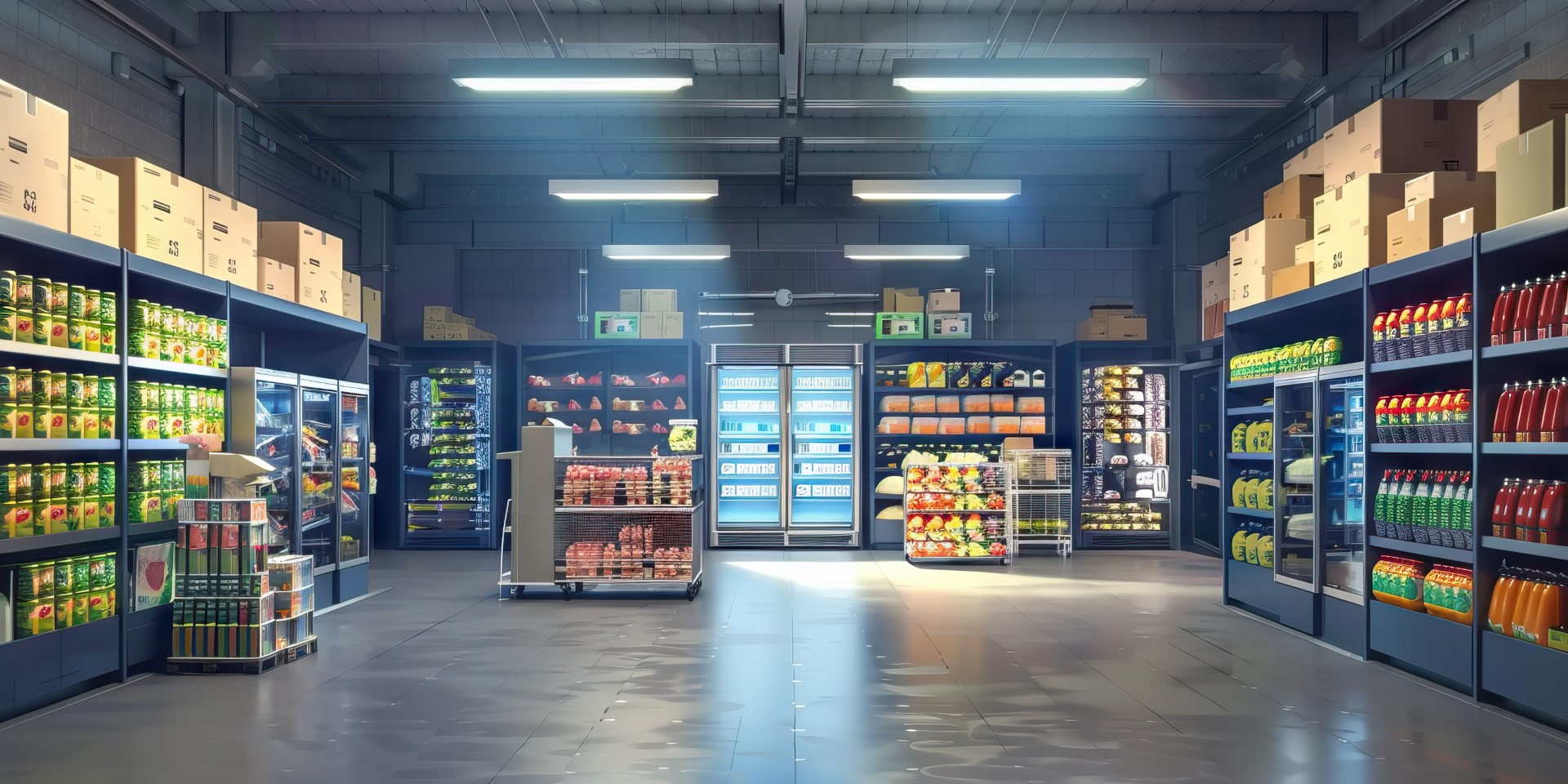
Reducing Downtime with Commercial Refrigeration Inspections

In the fast-paced world of business, any unexpected downtime can be a costly setback. One major advantage of regular inspections and maintenance for commercial refrigeration systems is the significant reduction in downtime. Breakdowns and malfunctions can severely impact your ability to serve customers, leading to lost revenue and potentially damaging your reputation.
By keeping up with maintenance checks, you can proactively address issues before they escalate. This proactive approach minimizes disruptions to your business operations. Regular maintenance ensures that all components of your refrigeration system are functioning optimally, reducing the risk of unexpected breakdowns.
Preventative maintenance also helps identify problems that may not be apparent during regular use. For instance, a refrigeration unit may appear to be working fine on the surface but could have internal issues that only a professional inspection can uncover. Addressing these hidden problems early can save you from unexpected downtime in the future, ensuring that your business remains operational and efficient.
Reducing Energy Consumption with Regular Inspections
Think of your commercial refrigeration system as an endurance athlete. Just as runners train consistently to maintain peak stamina, regular maintenance helps your refrigeration system operate at its most efficient level. Regular inspections and maintenance checks are crucial for catching potential issues early, preventing them from escalating into costly repairs or high utility bills.
Energy efficiency is a critical aspect of commercial refrigeration. Cleaning door seals is a task often overlooked during routine maintenance but can significantly impact energy costs if neglected. Worn-out or dirty door seals make it difficult for refrigerators to maintain consistent temperatures, causing them to run continuously in an effort to stay cool. This constant operation not only increases energy consumption but also places additional strain on the system, leading to potential breakdowns.
By regularly inspecting and maintaining your refrigeration system, you can ensure that it runs efficiently, reducing energy consumption and lowering your utility bills. This not only benefits your bottom line but also contributes to environmental sustainability by reducing your business’s carbon footprint.
Schedule an Estimate
Ensuring Food Safety with Regular Commercial Refrigeration Inspections
 For any food service business, ensuring food and beverage safety is paramount. Regular maintenance ensures that your refrigeration system operates at peak performance, keeping food fresh and safe from spoilage. This is crucial for maintaining the health and safety of your customers.
For any food service business, ensuring food and beverage safety is paramount. Regular maintenance ensures that your refrigeration system operates at peak performance, keeping food fresh and safe from spoilage. This is crucial for maintaining the health and safety of your customers.
Regular inspections help identify any potential contamination risks such as mold or bacteria growth, leaks, and temperature fluctuations. These issues can be promptly addressed to prevent food safety hazards. For example, mold and bacteria can grow in areas where moisture accumulates due to leaks or temperature inconsistencies. If left unchecked, these contaminants can spread to food products, posing serious health risks to your customers.
By conducting regular maintenance and inspections, you can ensure that your refrigeration system maintains the correct temperature and humidity levels, preventing the growth of harmful pathogens. This not only protects the health of your customers but also helps you comply with food safety regulations and standards.
Preventing Costly Repairs and Downtime with Regular Inspections
The importance of regular inspections in commercial refrigeration cannot be overstated. These checks help to identify potential problems early, reducing the likelihood of costly repairs. Maintenance may sometimes feel like an inconvenience, but it is a necessary one for keeping your equipment running efficiently and effectively.
By spotting issues early on, you not only save money on expensive fixes but also prevent downtime. For example, a small refrigerant leak might seem insignificant initially, but if left unchecked, it can lead to a major system failure that requires extensive repairs or even replacement. Regular inspections can catch such issues early, allowing for timely repairs that are far less costly than dealing with a major breakdown.
Moreover, regular maintenance can extend the lifespan of your refrigeration equipment. Well-maintained systems tend to last longer and perform better than those that are neglected. This means you can maximize the return on your investment and avoid the significant expense of replacing equipment prematurely.
Comprehensive Maintenance Plans for Optimal Performance
To fully benefit from regular inspections and maintenance, it is essential to have a comprehensive maintenance plan in place. A well-structured maintenance plan should include scheduled inspections, cleaning, and servicing of all components of your refrigeration system. This plan should be tailored to the specific needs of your business and the type of refrigeration equipment you use.
A comprehensive maintenance plan typically includes:
- Scheduled Inspections: Regularly scheduled inspections by qualified technicians to identify and address potential issues.
- Cleaning and Sanitization: Routine cleaning of all components, including coils, fans, and door seals, to ensure optimal performance and hygiene.
- Component Servicing: Servicing and replacing worn or damaged components to prevent breakdowns and extend the lifespan of the equipment.
- System Calibration: Ensuring that the system is properly calibrated to maintain consistent temperatures and energy efficiency.
- Documentation and Reporting: Keeping detailed records of all maintenance activities, inspections, and repairs for compliance and future reference.
By implementing a comprehensive maintenance plan, you can ensure that your commercial refrigeration system operates reliably and efficiently, minimizing downtime and maximizing performance.
The Financial Benefits of Regular Maintenance
Investing in regular maintenance for your commercial refrigeration system offers significant financial benefits. While there may be an upfront cost associated with maintenance services, the long-term savings far outweigh these initial expenses. Regular maintenance helps to:
- Reduce Repair Costs: By identifying and addressing issues early, you can avoid costly repairs that result from major breakdowns.
- Lower Energy Bills: Efficiently running refrigeration systems consume less energy, reducing your utility bills.
- Extend Equipment Lifespan: Well-maintained equipment lasts longer, reducing the need for expensive replacements.
- Minimize Downtime: Preventing unexpected breakdowns ensures that your business operations run smoothly without interruptions.
These financial benefits contribute to a healthier bottom line for your business, making regular maintenance a smart investment.
Ensuring Compliance with Regulations
Compliance with industry regulations and standards is essential for any business, particularly those in the food service industry. Regular maintenance of your commercial refrigeration system helps ensure that you meet all necessary regulatory requirements. This includes maintaining proper temperature levels, ensuring hygiene and cleanliness, and preventing contamination risks.
Failing to comply with regulations can result in fines, legal issues, and damage to your business’s reputation. Regular inspections and maintenance help you stay compliant, avoiding these potential pitfalls and ensuring the safety and satisfaction of your customers.
Schedule an Estimate
Contact Connect Building Services Today
Regular inspections and maintenance are critical for the optimal performance of commercial refrigeration systems. By reducing downtime, improving energy efficiency, ensuring food safety, preventing costly repairs, and extending equipment lifespan, regular maintenance offers numerous benefits for your business.
Investing in a comprehensive maintenance plan and working with professional technicians can help you maximize the performance and reliability of your refrigeration equipment. The financial savings, regulatory compliance, and peace of mind that come with regular maintenance make it an essential aspect of running a successful business. Don’t wait for problems to arise—prioritize regular maintenance to keep your commercial refrigeration system running smoothly and efficiently.
Commercial Refrigeration Inspection FAQ's
-
Why are regular commercial refrigeration inspections important?
Regular commercial refrigeration inspections are crucial for ensuring the optimal performance and efficiency of your equipment. These inspections help identify and address potential issues before they escalate into costly repairs or cause unexpected downtime. Additionally, regular maintenance ensures that your refrigeration system operates efficiently, reducing energy consumption and utility bills. Inspections also play a vital role in maintaining food safety by preventing contamination risks and ensuring consistent temperature control.
-
What does a commercial refrigeration inspection typically include?
A comprehensive commercial refrigeration inspection typically includes several key components. Technicians will examine and clean door seals, coils, fans, and other critical parts to ensure they are functioning correctly. They will check for refrigerant leaks, assess the overall condition of the system, and calibrate it to maintain optimal temperature and efficiency. The inspection may also include checking the electrical components, ensuring proper airflow, and documenting any potential issues for future reference. Regular inspections help extend the lifespan of your equipment and prevent unexpected breakdowns.
-
How often should commercial refrigeration systems be inspected?
The frequency of commercial refrigeration inspections can vary based on the type and usage of the equipment, as well as the specific needs of your business. However, a general recommendation is to have your refrigeration systems inspected at least twice a year. For businesses that heavily rely on refrigeration, such as restaurants or grocery stores, more frequent inspections may be necessary. Regular inspections help ensure that your system is operating efficiently, reduce the risk of unexpected breakdowns, and maintain compliance with food safety regulations.

